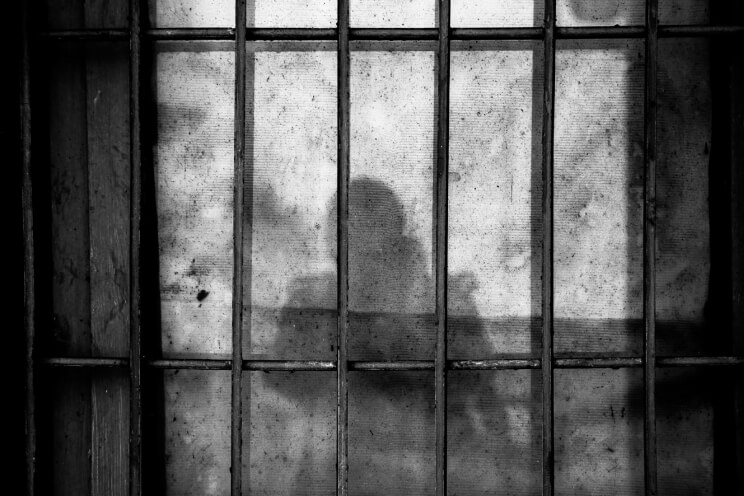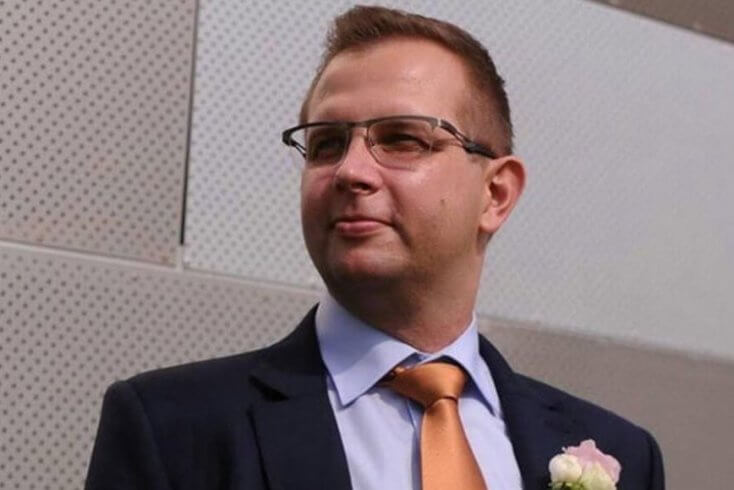Supreme Court convicts dead Nazi criminal of genocide

March 28, Pozirk. The Supreme Court has found Siamion Sierafimovič, who was born in Mir, Belarus, and died in the UK in 1997, guilty of involvement in genocide against Belarusian people during World War II, the Prosecutor General’s Office reported.
Sierafimovič was accused of murdering at least 4,144 people, including 622 children. The man, who headed an auxiliary police unit during the war, reportedly gave his subordinates orders to torture, shoot, hang and burn people alive.
The case is a part of a series of trials targeting dead perpetrators of war crimes against Belarusians, following the conviction of Volodymyr Katriuk, an ethnic Ukrainian born in 1921 in the village of Luzhany, and proceedings against ethnic Pole Konstanty Smowski last year. Both were accused of involvement in Chatyń massacre in 1943.
The Belarusian government’s persecution of dead Nazi war criminals is primarily politically motivated, said Gundula Pohl, of the Institute of History in Hagen, Germany, in her article published online in January 2025.
“It reflects the state’s need to legitimize its authoritarian rule and create a new basis for national identity after the brutal suppression of peaceful civil protests in the summer of 2020.”
The government started promoting the concept of genocide against Belarusians about four years ago, while Prosecutor General Andrej Švied personally contributed content for a textbook on genocide for five-graders.
Alaksandar Łukašenka signed laws providing for the criminal prosecution of the dead and criminalizing the denial of genocide. Denial carries a penalty of five years in prison. Repeated violation of the law may lead to up to 10 years in prison.
Historians and analysts note that the authorities also use the genocide theme to discredit their opponents by tying their symbols to Nazi collaborators.
“With the newly emphasized genocide campaign, the state seeks to establish a uniquely Belarusian and nationally unifying narrative. Ultimately, by focusing primarily on non-German (Belarusian, Ukrainian, Lithuanian) perpetrators, it aims to deliberately discredit the political opposition and “western” states. The concept of genocide serves as its vehicle,” says Pohl.
According to Law No. 146-Z, the term “Belarusian people” refers to all “Soviet citizens who lived on the territory of the Belarusian Soviet Socialist Republic (BSSR) during the Great Patriotic War and/or the post-war period.”
“This construction of the term and the isolation of the events on Belarusian soil from the rest of Nazi-occupied Soviet territory establishes the regime’s exclusive claim to the memory of the war and occupation and represents a deliberate distinction from Russia’s stance, despite current foreign policy alignments,” the researcher says.
Also read: Supreme Court convicts another dead Nazi criminal of genocide
- Politics, SecurityUnits based in western Belarus receive ready-for-action orders as part of an exerciseThe material is available only to POZIRK+
- Politics, SportBelarusian, Russian figure skaters barred from World ChampionshipsThe material is available only to POZIRK+
- PoliticsCrackdown on Belarusian publishers reported in MinskThe material is available only to POZIRK+
- Politics
- Society, Sport
- Society
- Society
- PoliticsPolitically motivated convictions reported in Minsk, HrodnaThe material is available only to POZIRK+
- Politics, SecurityBelarus says it downs drones as Kyiv accuses Minsk of aiding Russian attacksThe material is available only to POZIRK+
- PoliticsMinsk to negotiate visa free travel to Saudi Arabia for officialsThe material is available only to POZIRK+
- Economy, PoliticsBelarus holds 496 Lithuanian trucks, 575 semi-trailers - LINAVAThe material is available only to POZIRK+
- Economy, Security, SocietyThree men jailed in Lithuania for smuggling cigarettes from BelarusThe material is available only to POZIRK+
- PoliticsKGB adds eight to list of terroristsThe material is available only to POZIRK+
- EconomyVacancies for foreigners rise by nearly 17 percent in Belarus over a monthThe material is available only to POZIRK+
- Security, SocietyLithuania turns nine African migrants back to BelarusThe material is available only to POZIRK+
- Politics, SecurityConscription-age men given 24 hours to report for military trainingThe material is available only to POZIRK+
- PoliticsFaction Biełarusy quits Coordination CouncilThe material is available only to POZIRK+
- PoliticsOpposition leader urges OSCE PA to establish working group on BelarusThe material is available only to POZIRK+
- Economy
- PoliticsEU Delegation welcomes Statkievič’s release, urges Minsk to free all jailed dissidentsThe material is available only to POZIRK+



